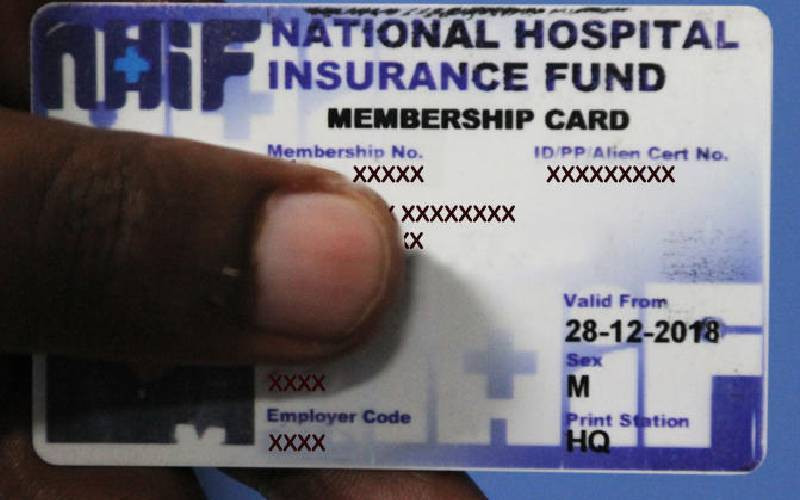
The attainment of Universal Health Coverage (UHC) remains one of the key pillars of President Uhuru Kenyatta’s Big Four Agenda, with several strategies being put in place by the government to ensure its realisation.
The National Health Insurance Fund (NHIF) was chosen as the vehicle through which the population will access quality healthcare services without suffering financial hardship.
The decision follows the pilot in 2018/19 in four counties that was implemented on an input financing model, where public facilities were supported with technologies, human capital, equipment, and commodities which allowed the public to access services free of charge.
The scale-up has been implemented on an insurance model which has been found to be more sustainable while still focusing on strengthening health systems. To ensure sustainability and cost-containment of NHIF, the State initiated a raft of reforms that would transition and position the Fund as a strategic purchaser of healthcare services.
The reforms include the digitalisation of NHIF processes, restructuring and realignment of the structure, benefits design, and amendment of the NHIF Act.
With the ball rolling on all these plans and initiatives on UHC, a number of strategies have been put in place to ensure the dream is realised and sustained.
Key among these strategies is the onboarding of all Kenyans as NHIF members. The current membership consists of 14.3 million principal members, and 18.6 dependents, totalling 32.9 million beneficiaries. This is 69 per cent of the total population of 47 million Kenyans.
However, only 44.6 per cent (6.3 million members) are active. The active ones mostly need sustained treatment as others come in only because they have a medical need and drop off once met. The trend has put a strain on NHIF resources and is unsustainable.
The amended NHIF Act gives provision for all Kenyans above 18 years to be registered as NHIF members. The Act has provided for mandatory contributions by all those who can afford to pay for their health insurance while the State will identify and support indigents and vulnerable households.
The second strategy is the purchase of healthcare services. The amended Act allows NHIF an opportunity to be creative in terms of engagement for strategic purchasing of healthcare services. With the change of name, from National Hospital Insurance Fund to National Health Insurance Fund, the Fund can now contract different healthcare providers besides hospitals.
They include laboratories, consultants, pharmacies, hospices, and healthcare professionals. Plans are in advanced stages to introduce a pharmacy benefit package that aims at bringing the cost of medication lower and accessible in contracted facilities.
Supply-side financing also remains crucial. The success of UHC will mean that the beneficiaries access the services they need including pharmaceuticals and non-pharmaceutical when they visit healthcare providers.
A long-term strategy to control and bring down the costs especially related to non-communicable diseases is by partnering with pharmaceutical manufacturers and distributors to ensure strategic purchasing for efficiency and value for money for NHIF beneficiaries.
Engagement with counties is also key. There is a need to look at how to increase capacity in public facilities as this will ensure access to most beneficiaries. NHIF has contracted 7,666 healthcare providers, 72 per cent of which are public facilities.
Most importantly, data harvesting will play a key role in decision-making. Sustainability and strengthening of systems in the health sector require the reduction in the cost of care, reduction of preventable illnesses and bundling of the costs of specialised care.
The author is the CEO, National Health Insurance Fund
 The Standard Group Plc is a multi-media organization with investments in media platforms spanning newspaper print
operations, television, radio broadcasting, digital and online services. The Standard Group is recognized as a
leading multi-media house in Kenya with a key influence in matters of national and international interest.
The Standard Group Plc is a multi-media organization with investments in media platforms spanning newspaper print
operations, television, radio broadcasting, digital and online services. The Standard Group is recognized as a
leading multi-media house in Kenya with a key influence in matters of national and international interest.

